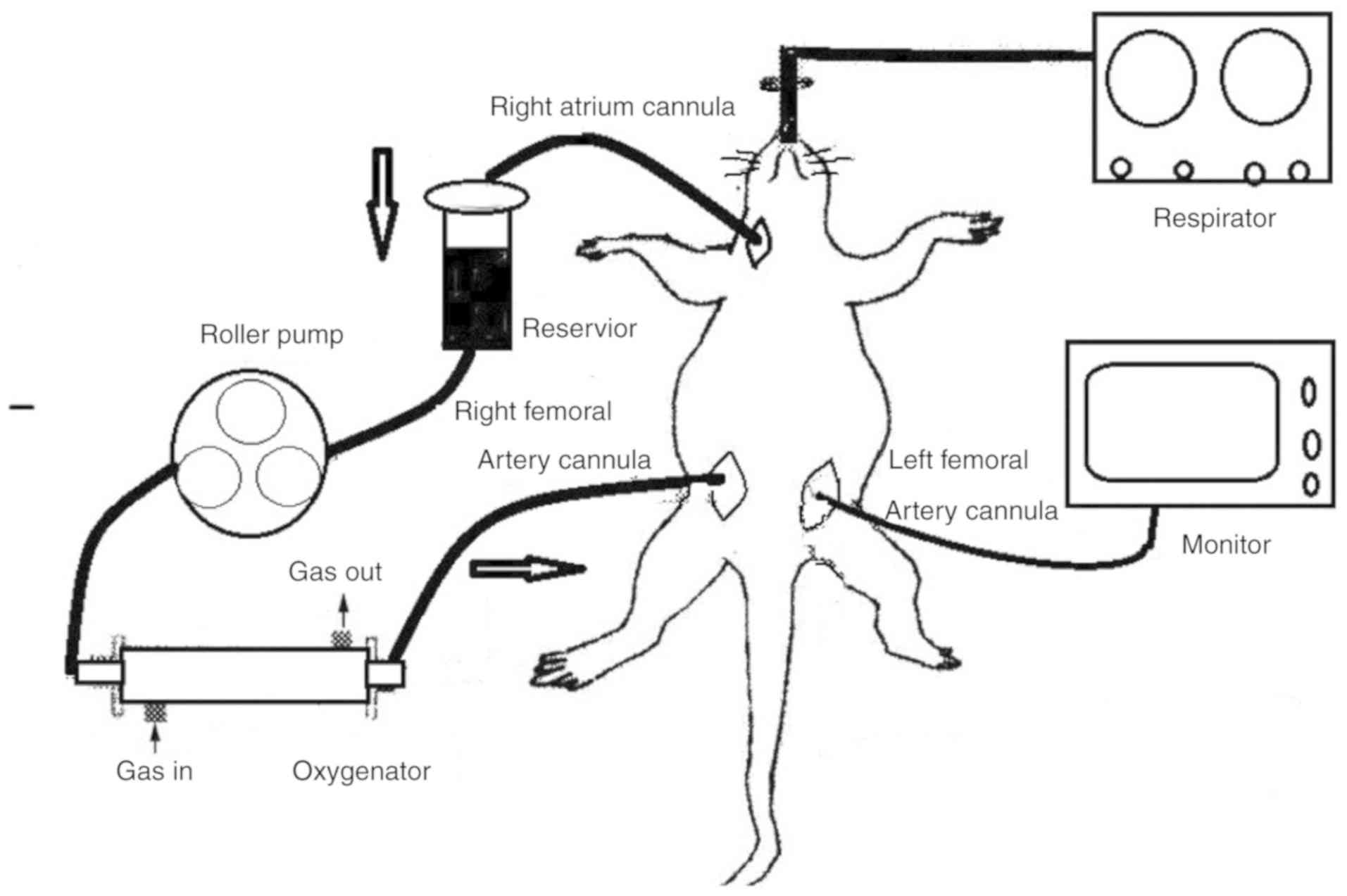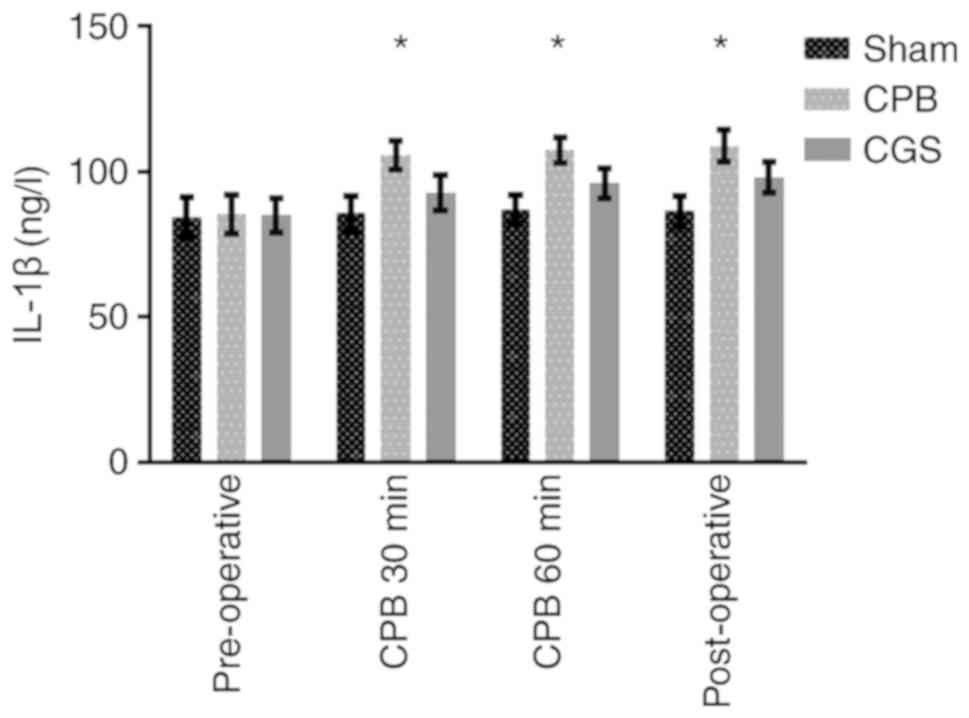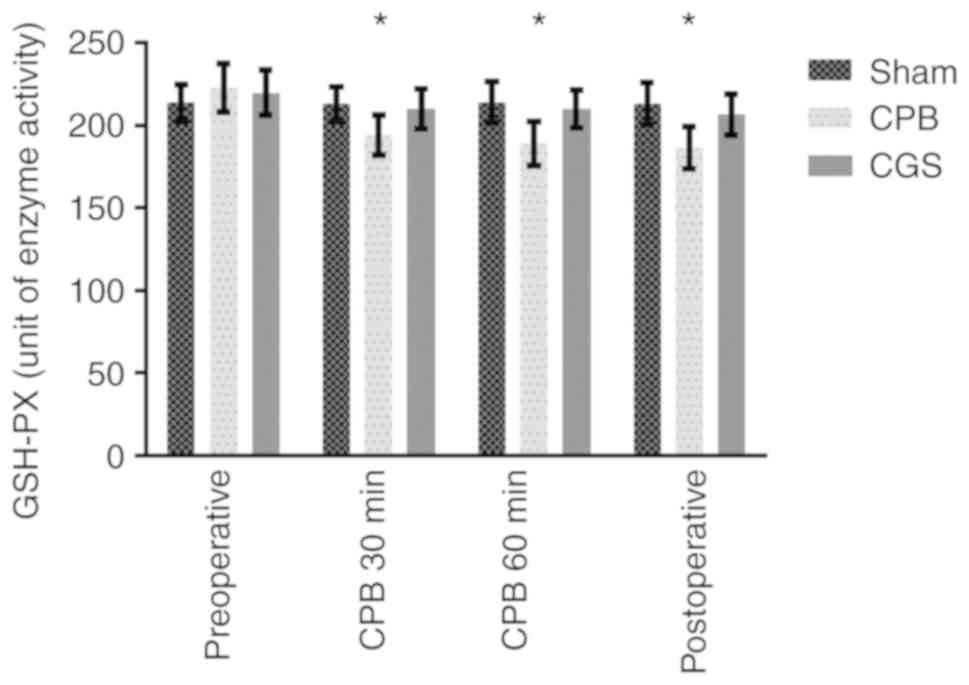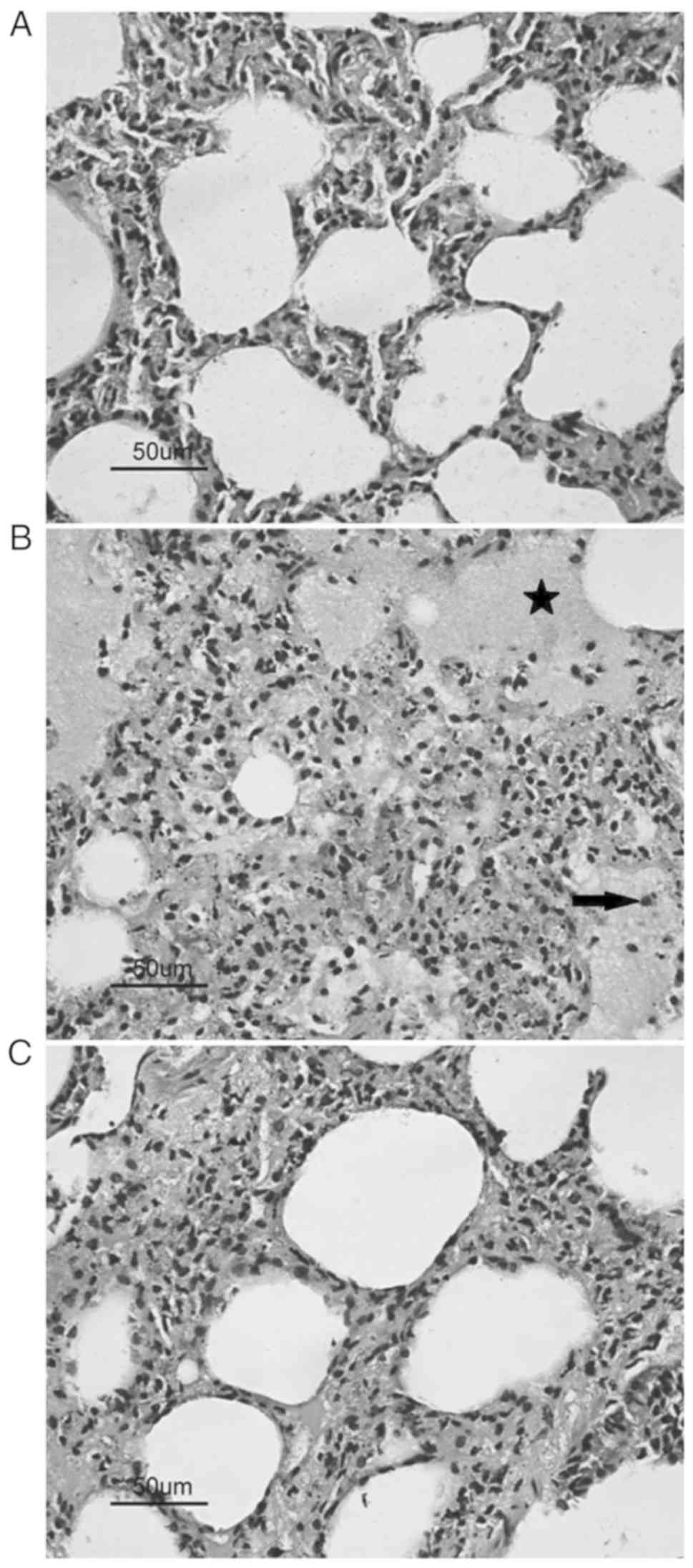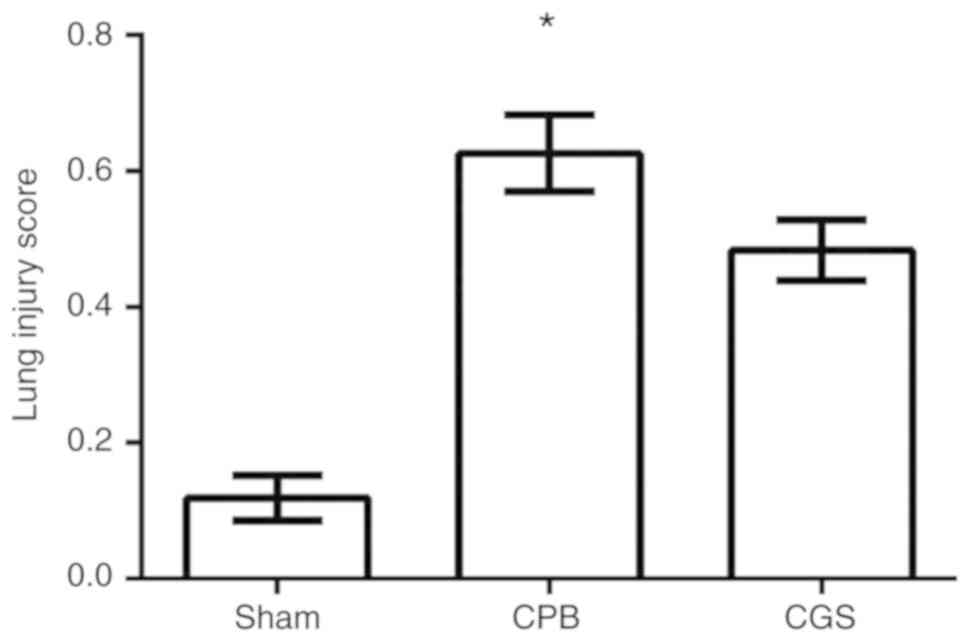|
1
|
Caputo M, Mokhtari A, Miceli A, Ghorbel
MT, Angelini GD, Parry AJ and Suleiman SM: Controlled reoxygenation
during cardiopulmonary bypass decreases markers of organ damage,
inflammation, and oxidative stress in single-ventricle patients
undergoing pediatric heart surgery. J Thorac Cardiovasc Surg.
148:792–801. 2014. View Article : Google Scholar : PubMed/NCBI
|
|
2
|
Li JA, Liu YL, Liu JP and Li XF: Pulmonary
artery perfusion with HTK solution prevents lung injury in infants
after cardiopulmonary bypass. Chin Med J (Engl). 123:2645–2650.
2010.PubMed/NCBI
|
|
3
|
Pappachan VJ, Brown KL and Tibby SM:
Paediatric cardiopulmonary bypass surgery: The challenges of
heterogeneity and identifying a meaningful endpoint for clinical
trials. Intensive Care Med. 43:113–115. 2017. View Article : Google Scholar : PubMed/NCBI
|
|
4
|
Salameh A, Greimann W, Vollroth M, Dhein
S, Bahramsoltani M and Dahnert I: Lung protection in
cardio-pulmonary bypass. J Physiol Pharmacol. 68:99–116.
2017.PubMed/NCBI
|
|
5
|
Davidson JA, Urban T, Tong S, Twite M,
Woodruff A, Wischmeyer PE and Klawitter J: Alkaline phosphatase,
soluble extracellular adenine nucleotides, and adenosine production
after infant cardiopulmonary bypass. PLoS One. 11:e01589812016.
View Article : Google Scholar : PubMed/NCBI
|
|
6
|
Lisle TC, Gazoni LM, Fernandez LG, Sharma
AK, Bellizzi AM, Shifflett GD, Laubach VE and Kron IL: Inflammatory
lung injury after cardiopulmonary bypass is attenuated by adenosine
A2A receptor activation. J Thorac Cardiovasc Surg. 136:1280–1287.
2008. View Article : Google Scholar : PubMed/NCBI
|
|
7
|
Lappas CM, Sullivan GW and Linden J:
Adenosine A2A agonists in development for the treatment of
inflammation. Expert Opin Investig Drugs. 14:797–806. 2005.
View Article : Google Scholar : PubMed/NCBI
|
|
8
|
Ohta A and Sitkovsky M: Role of
G-protein-coupled adenosine receptors in downregulation of
inflammation and protection from tissue damage. Nature.
414:916–920. 2001. View
Article : Google Scholar : PubMed/NCBI
|
|
9
|
Vuorimaa A, Rissanen E and Airas L: In
vivo PET imaging of adenosine 2A receptors in neuroinflammatory and
neurodegenerative disease. Contrast Media Mol Imaging.
2017:69758412017. View Article : Google Scholar : PubMed/NCBI
|
|
10
|
Jänicke B and Coper H: The effects of
prenatal alcohol exposure on the behavior of rats during their life
span. J Gerontol. 48:B156–B167. 1993. View Article : Google Scholar : PubMed/NCBI
|
|
11
|
Dong GH, Xu B, Wang CT, Qian JJ, Liu H,
Huang G and Jing H: A rat model of cardiopulmonary bypass with
excellent survival. J Surg Res. 123:171–175. 2005. View Article : Google Scholar : PubMed/NCBI
|
|
12
|
White PJ, Rose'Meyer RB and Hope W:
Changes in adenosine receptors mediating hypotension in
morphine-dependent rats. Eur J Pharmacol. 294:215–220. 1995.
View Article : Google Scholar : PubMed/NCBI
|
|
13
|
Matute-Bello G, Downey G, Moore BB,
Groshong SD, Matthay MA, Slutsky AS and Kuebler WM; Acute Lung
Injury in Animals Study Group, : An official American Thoracic
Society workshop report: Features and measurements of experimental
acute lung injury in animals. Am J Respir Cell Mol Biol.
44:725–738. 2011. View Article : Google Scholar : PubMed/NCBI
|
|
14
|
Chee YR, Watson RW, McCarthy J, Chughtai
JZ, Nölke L and Healy DG: High dose statin prophylaxis in
cardiopulmonary bypass related surgery: Clinical utility. J
Cardiothorac Surg. 12:202017. View Article : Google Scholar : PubMed/NCBI
|
|
15
|
Fujii Y, Tanabe T, Yamashiro T, Shirai M,
Takewa Y and Tatsumi E: Effect of Hydroxyethyl starch priming on
the systemic inflammatory response and lung edema after
cardiopulmonary bypass in a rat model. ASAIO J. 63:618–623. 2017.
View Article : Google Scholar : PubMed/NCBI
|
|
16
|
Boehne M, Sasse M, Karch A, Dziuba F,
Horke A, Kaussen T, Mikolajczyk R, Beerbaum P and Jack T: Systemic
inflammatory response syndrome after pediatric congenital heart
surgery: Incidence, risk factors, and clinical outcome. J Card
Surg. 32:116–125. 2017. View Article : Google Scholar : PubMed/NCBI
|
|
17
|
Bronicki RA and Hall M: Cardiopulmonary
Bypass-induced inflammatory response: Pathophysiology and
treatment. Pediatr Crit Care Med 17 (8 Suppl 1). S272–S278. 2016.
View Article : Google Scholar
|
|
18
|
Nader MA and Baraka HN: Effect of
betulinic acid on neutrophil recruitment and inflammatory mediator
expression in lipopolysaccharide-induced lung inflammation in rats.
Eur J Pharm Sci. 46:106–113. 2012. View Article : Google Scholar : PubMed/NCBI
|
|
19
|
Sharma AK, LaPar DJ, Stone ML, Zhao Y,
Mehta CK, Kron IL and Laubach VE: NOX2 activation of natural killer
T cells is blocked by the adenosine A2A receptor to inhibit lung
ischemia-reperfusion injury. Am J Respir Crit Care Med.
193:988–999. 2016. View Article : Google Scholar : PubMed/NCBI
|
|
20
|
Wagner CE, Pope NH, Charles EJ, Huerter
ME, Sharma AK, Salmon MD, Carter BT, Stoler MH, Lau CL, Laubach VE
and Kron IL: Ex vivo lung perfusion with adenosine A2A receptor
agonist allows prolonged cold preservation of lungs donated after
cardiac death. J Thorac Cardiovasc Surg. 151:538–545. 2016.
View Article : Google Scholar : PubMed/NCBI
|
|
21
|
Stone ML, Sharma AK, Mas VR, Gehrau RC,
Mulloy DP, Zhao Y, Lau CL, Kron IL, Huerter ME and Laubach VE: Ex
vivo perfusion with adenosine A2A receptor agonist enhances
rehabilitation of murine donor lungs after circulatory death.
Transplantation. 99:2494–2503. 2015. View Article : Google Scholar : PubMed/NCBI
|
|
22
|
Lappas CM, Rieger JM and Linden J: A2A
adenosine receptor induction inhibits IFN-gamma production in
murine CD4+ T cells. J Immunol. 174:1073–1080. 2005. View Article : Google Scholar : PubMed/NCBI
|
|
23
|
Shin EY, Wang L, Zemskova M, Deppen J, Xu
K, Strobel F, García AJ, Tirouvanziam R and Levit RD: Adenosine
production by biomaterial-supported mesenchymal stromal cells
reduces the innate inflammatory response in myocardial
ischemia/reperfusion injury. J Am Heart Assoc. 7(pii):
e0069492018.PubMed/NCBI
|
|
24
|
Wang X, Gao M, Schouteden S, Roebroek A,
Eggermont K, van Veldhoven PP, Liu G, Peters T,
Scharffetter-Kochanek K, Verfaillie CM and Feng Y: Hematopoietic
stem/progenitor cells directly contribute to arteriosclerotic
progression via integrin β2. Stem Cells. 33:1230–1240. 2015.
View Article : Google Scholar : PubMed/NCBI
|
|
25
|
Chhabra P, Linden J, Lobo P, Okusa MD and
Brayman KL: The immunosuppressive role of adenosine A2A receptors
in ischemia reperfusion injury and islet transplantation. Curr
Diabetes Rev. 8:419–433. 2012. View Article : Google Scholar : PubMed/NCBI
|
|
26
|
Hayashi Y, Sawa Y, Nishimura M, Tojo SJ,
Fukuyama N, Nakazawa H and Matsuda H: P-selectin participates in
cardiopulmonary induced inflammatory response in association with
nitric oxide and peroxynitrite production. J Thorac Cardiovasc
Surg. 120:558–565. 2000. View Article : Google Scholar : PubMed/NCBI
|
|
27
|
Fredholm BB, Chern Y, Franco R and
Sitkovsky M: Aspects of the general biology of adenosine A2A
signaling. Prog Neurobiol. 83:263–276. 2007. View Article : Google Scholar : PubMed/NCBI
|
|
28
|
Ballesteros-Yáñez I, Castillo CA, Merighi
S and Gessi S: The role of adenosine receptors in psychostimulant
addiction. Front Pharmacol. 8:9852018. View Article : Google Scholar : PubMed/NCBI
|
|
29
|
Kozik DJ and Tweddell JS: Characterizing
the inflammatory response to cardiopulmonary bypass in children.
Ann Thorac Surg. 81 (Suppl):S2347–S2354. 2006. View Article : Google Scholar : PubMed/NCBI
|















